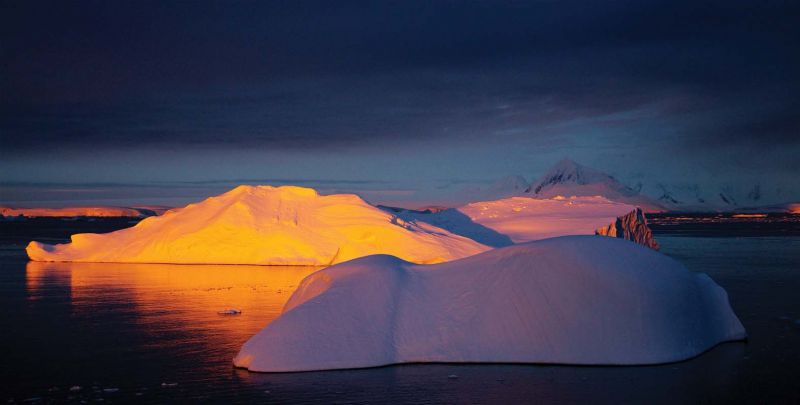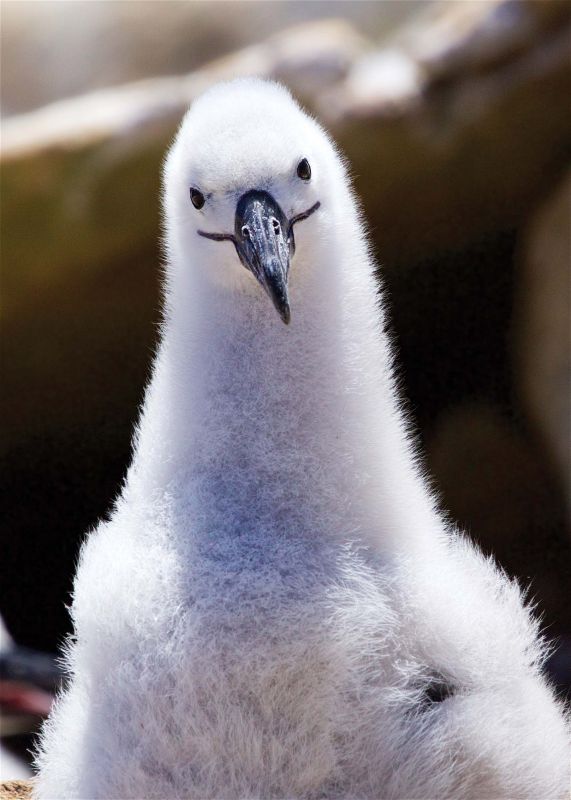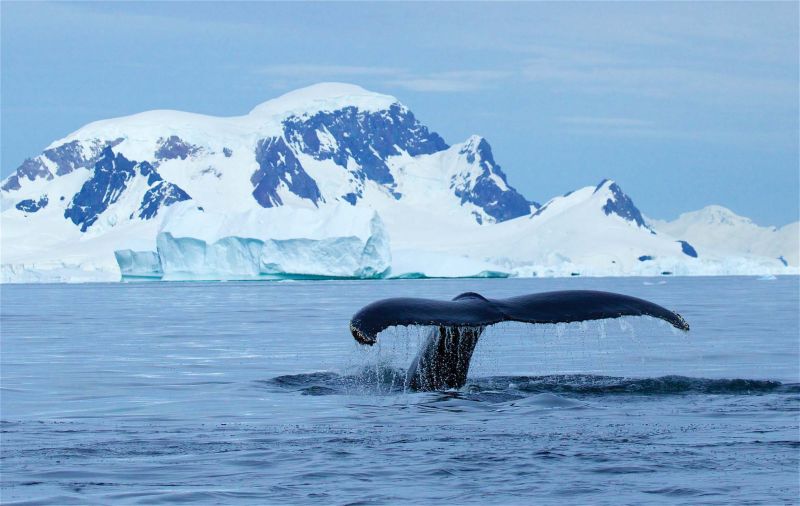Life in the ice- through his eyes
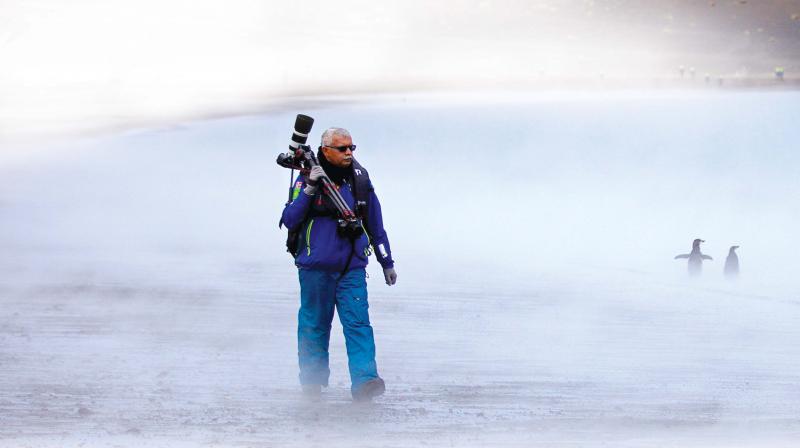
Balan Madhavan was two days and a few more hours away from the evening he is presenting the life of Antarctica in a photo-documentary before some enthused eyes in Thiruvananthapuram. As uninterrupted the human vision is in the polar region, the 800 GB storage space of his hard disk devices lay bare in all its vastness. The lensman himself was slowly exploring the depths of the concise continent he had captured and frozen in frames in a four-week expedition to the South Pole in January. He was fast rummaging through the huge repository of stills, videos, and smart picking the best shots for a photo-documentary to tell the world what life means in this little explored southern tip of the globe.
Despite him being a synonym for wildlife photography in Kerala, Antarctica left Balan beguiled and bemused. So was the pack of travel, photography loving Malayalis, 16 in number, who accompanied him in the Norwegian cruise Midnatsol. Unlike researchers, who have stations over there, tourists were not allowed to camp on the land and had to stay in the vessel. “Never before have I experienced wild-life in such splendour,” he sets the perfect intro for the nature's magical bounties about to come forth in a gushing cascade. “Like we approach an elephant or tiger from 50 metre proximity, there we were in the middle of a penguin family. So coolly they pass between our legs that they are least frightened of humans. We feel so attached to them as if towards a cuddling toy.
Predatory Skuvas prey on unattended penguin chicks. The birds are also food for seals in water. But on land, we find this amazing sight where they walk non-chalantly beside their predator,” he narrates. In an atmosphere clear of humidity, clarity of vision is boundless. “As people who see life in smaller frames, a panoramic view was spreading out before our eyes. Towering mountains and snow caps lay in an unimaginable expanse. We get a crystal clear view of about 30 to 40 kilometres at a stretch. Such a humbling experience it was that, we realise humans are such lesser beings before nature.”
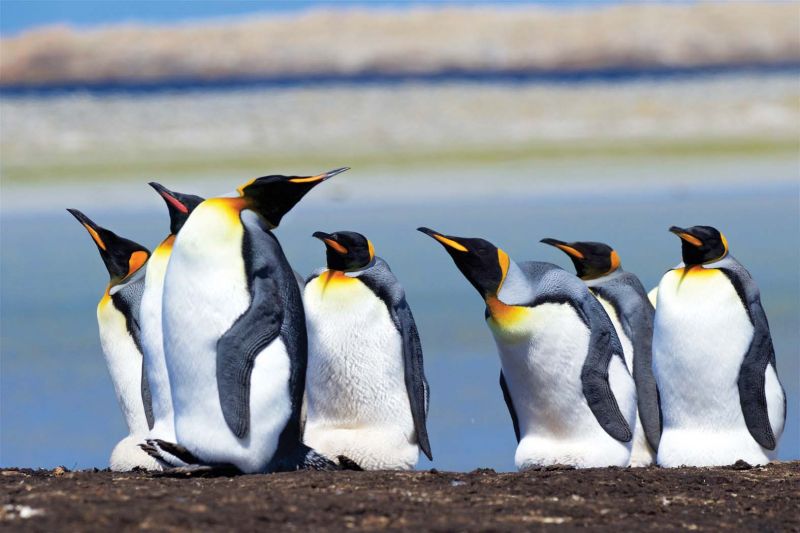 King Penguins in Falkland Islands
King Penguins in Falkland Islands
Translating the visual experience to pixel power did not come that handy though. “A polarising filter was always fixed before the lens. Unless you have a good command over your camera, things can go awry. The white areas can so easily get bleached if the camera is not properly exposed. The place is about four to five times brighter than our region. We were in for a challenge.” All through the expedition, he kept two backup memory devices to store the images and videos. The routine was to rush to the vessel and transfer the camera storage into these additional disks via laptop at the end of the day. Still the unexpected happened when one of his hard disks gave in to the extreme cold! Luckily he got a replace from the ship in no time. The chilling climate was too bad a place for certain compact cameras to survive.
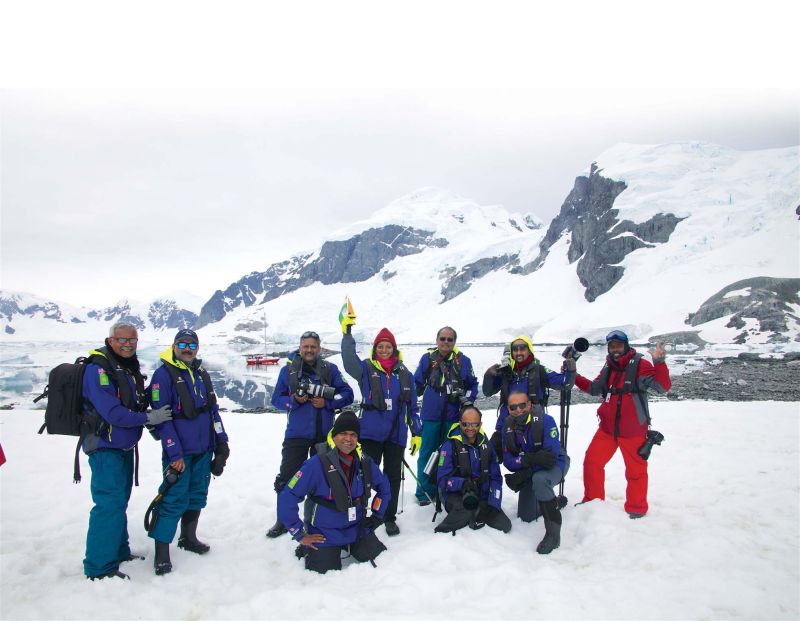 Balan Madhavan (left) with his team
Balan Madhavan (left) with his team
“Like the way we wear multi-layer clothing to beat the cold, the vital paraphernalia were also carefully stored in that manner. On the inner layer pocket were the external battery and memory cards kept.” Until settling into the vessel by ‘evening’, the major preoccupation was to navigate through the continent. “Practically, there is no night time. Sun downs by around 11 at night and rises, in say, another one-and-a-half-hour. There is a permanent shine.” One night, Balan was in for an amazement of a life time. Sitting on the deck of the nine-storey cruise, he watched a giant wave lash up to the highest level.
The most challenging part of all was crossing the Drake Passage (between South America’s Cape Horn and the South Shetland Islands of Antarctica). “The rough sea caused sea sickness in many. The ship sways about 20-30 metres up and comes down, causing trouble to our body’s fluid management mechanism.” The nature’s beauty aside, Antarctica sends out a huge warning for tomorrow. “World’s 80 percent of fresh water is locked here as ice. It breaks down in summer, causing rise in sea level, a clear indication of global warming.” There is more to keep you glued to the seats and watch As the Icebergs Melt Away. Get seated at Goethe-Zentrum by 6.30pm today.

